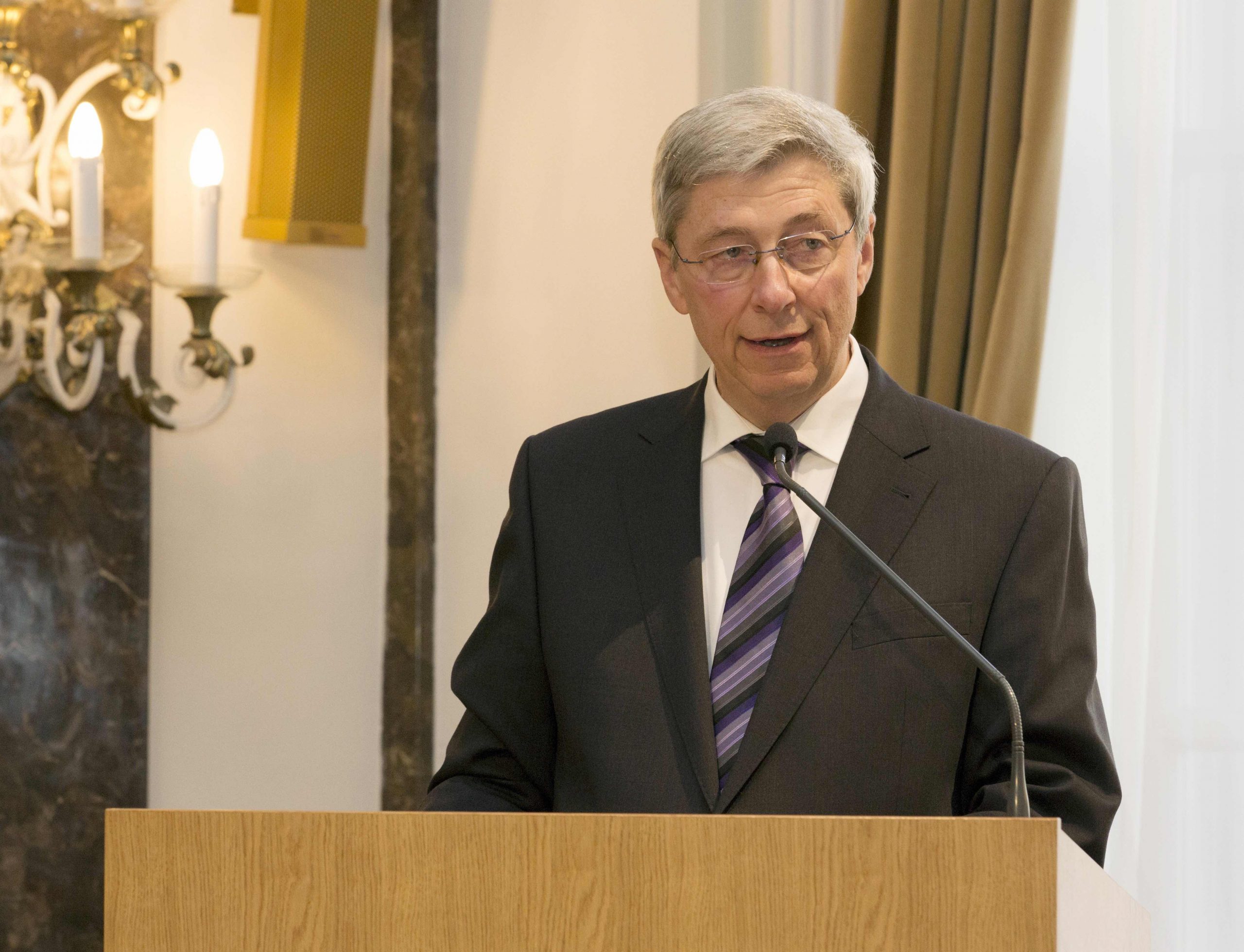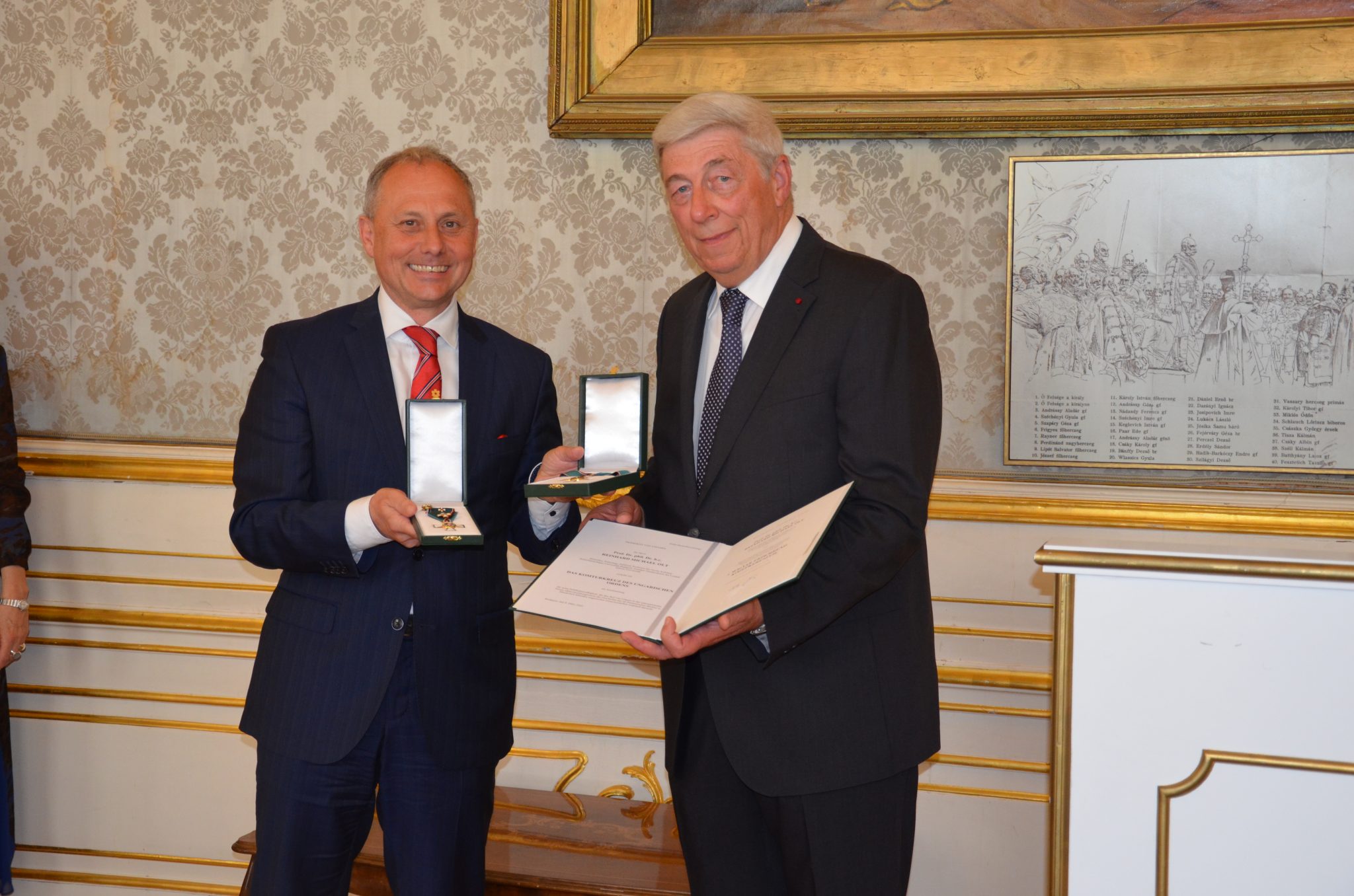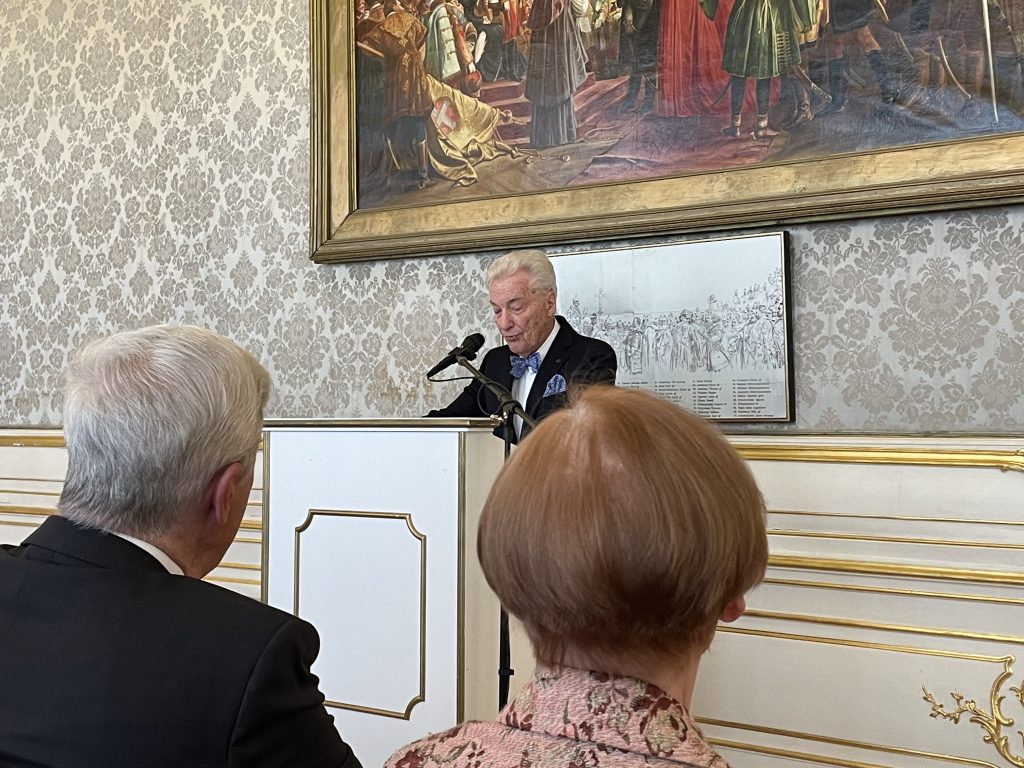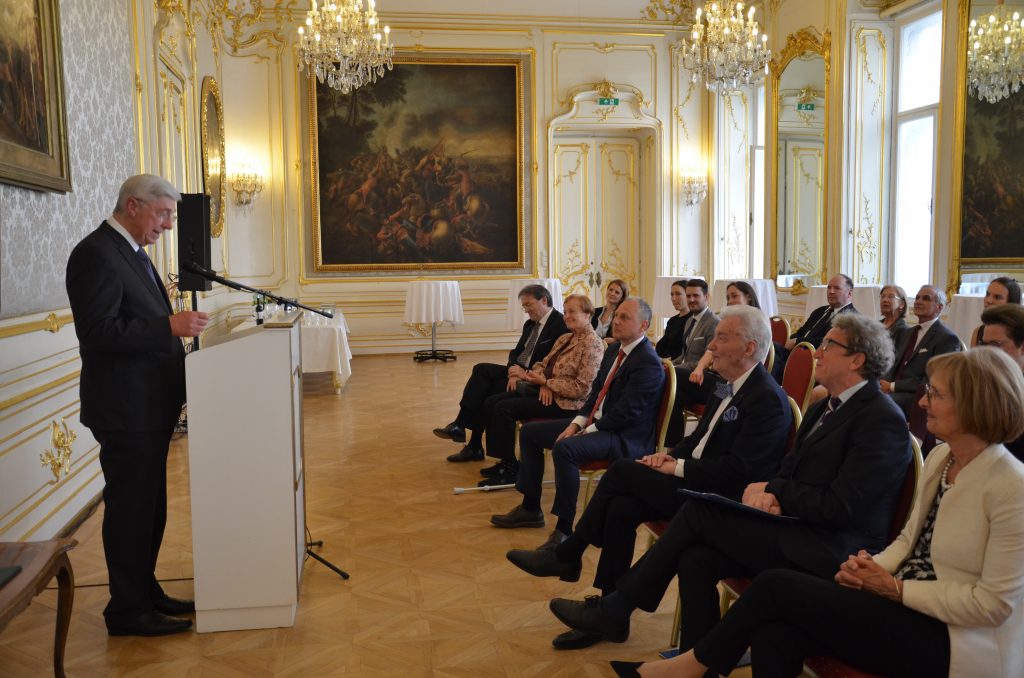
27 years at the Frankfurter Allgemeine Zeitung and also political reporting on Hungary- this is how Reinhard Olt's personal history with our country began.Continue reading

“In recognition of his published work in the international press, which has always strengthened Hungary’s reputation, as well as his writings on the history of Hungarian minorities in the Carpathian Basin,” the citation stated as to why last year the German historian, publicist, and Germanist received one of Hungary’s highest state honors. Every year on the national holiday, March 15, Hungary’s President awards the Hungarian Order of Merit. Due to the coronavirus pandemic, the ceremony did not take place in the Parliament building as usual, but at the Hungarian Embassy in Vienna, and only one year later after the award had already been granted. Reinhard Michael Olt, member of the Friends of Hungary Foundation, who was also awarded the “Friend of Hungary Award” in 2017, said in his speech that he felt deeply touched when he learned that he had been awarded the Hungarian Order of Merit.
This article was originally published on our sister-site, Ungarn Heute.
Seven years at the Frankfurter Allgemeine Zeitung and for a certain time also in political reporting on Hungary, is how Reinhard Olt’s personal history with our country began. He has also specialized with his work on the topic of minority politics, about which he recently even wrote the book “Im Karpatenbogen”[In the Carpathian Arc/A Kárpátok Ívében)] (Published by the Friends of Hungary Foundation). About his work as a correspondent, he said in an earlier interview with Hungary Today’s sister site, Ungarn Heute, the following:
When I actually became responsible for Hungary as a correspondent, I had no special expectations of the country, I was actually just curious about the first Orbán government, which had been in office for two years at that time.”
For his work in the service of the Hungarian nation, the German professor recently received the Hungarian Order of Merit. However, because of the coronavirus pandemic, he could not receive the award immediately and not in Hungary.
At the ceremony, the Hungarian Ambassador to Austria greeted the honoree and pointed out that regrettably, the ceremony had to be postponed several times due to COVID-19.
E. Sylvester Vizi, Chairman of the “Friends of Hungary Foundation,” research physician, and former President of the Hungarian Academy of Sciences, welcomed the honoree on behalf of the Friends of Hungary Foundation.
We are very pleased to be here today and to have the opportunity to meet Professor Olt in person. The pandemic is not over yet and on top of that there is war next to us – one of the greatest tests of Europe’s strength since World War II, the Russian war of aggression against Ukraine. But we have this opportunity to meet here, thanks to your invitation, Mr. Ambassador, for which I would like to express my gratitude now.”

Photo: Dániel A Vargha
Vizi praised Olt’s work to date and stressed that it has done much to improve Hungary’s reputation in the world, which is in line with the goals of the Friends of Hungary Foundation.
We want justice for Hungary! We want to get more understanding that our love for the homeland is not nationalism, it is just a passionate patriotism that comes from our history.”
He also talked about the foundation that was established in 2011:
The Friends of Hungary Foundation was established with the aim to inform the foreign Hungarian organizations and the friends of Hungary all over the world, the public, about the events from Hungary, and to correct the one-sided portrayal about us and the false reports of some media organizations that can be read in the Western press, and to spread the truth, to make it understandable for everyone. In this work we have received great help from Professor Olt. Hopefully, we will continue to enjoy his help in the future.”
He emphasized that no one has done as much for the minorities of Europe as Professor Olt and highlighted his work Im Karpatenbogen, published by the Friends of Hungary Foundation.
This book should be taught in school, everyone must read it, all of you here too, and it must be read by everyone who work with minorities.”
Finally, the Chairman again expressed his gratitude for Professor Olt’s activities and congratulated him for the well-deserved state award.

Photo via Embassy of Hungary in Vienna
The honoree first greeted the solemn audience in Hungarian. In his speech, he gave thanks for the honor and for the presence of Ambassador Andor Nagy, President E. Sylvester Vizi and his wife Veronika Ádám, and Anzelm Bárány, Director at Collegium Hungaricum Vienna.
It is a great pleasure for me to know among us friends and companions from Germany living in Vienna (…) I gratefully enjoy our meeting in this traditional house, in an occasion-bound solemn framework, and I thank Hungary, in particular its president János Áder, for this state award, but above all Professor Vizi, to whom I owe it.”
Olt said that he has known the Hungarians and the national minorities since his studies, for more than forty years. He emphasized that he was closely connected with Austria, Hungary, and Central Europe and that he was especially concerned about national minorities.
In my journalistic and academic work, I have therefore been primarily concerned with national minorities; but not in the way that it appears in the mass media and nd never was I concerned with political correctness.”
The honoree again expressly emphasized that he was deeply touched when he learned that he had been awarded the Hungarian Order of Merit. He concluded by once again thanking Ambassador Nagy, President Vizi, the outgoing Hungarian President Áder, and his successor Katalin Novák, for the award.
Many thanks and may God be with you and all of us!”
The award was solemnly presented by the Hungarian Ambassador Andor Nagy and Anzelm Bárány, the Director of the Hungarian Cultural Institute Collegium Hungaricum Vienna.

Photo via Embassy of Hungary in Vienna
After the ceremony, Professor Olt told Ungarn Heute what the award means to him in detail:
For me, this is the greatest honor I have ever received. It also exceeds the Austrian Decoration for Science and Art. Especially because I always have to deal with people who are active in journalism and who write things about Hungary that I simply can’t stand anymore, and because I have been fighting against them for years.”
He also added that there is tunnel vision in journalism these days. “You only look in limited ways. You don’t do research anymore. You only get things that others also write, you stay nicely in the corridor and I can’t stand that,” he said, adding that this award was the highest for him.
I also have a close relationship with this country. I have many friends there.”
Asked if he would continue to write about Hungary, Professor Olt said he could no longer write for the Frankfurter Allgemeine Zeitung, but he still planned to write on Hungarian topics in general.
Featured image via Embassy of Hungary in Vienna